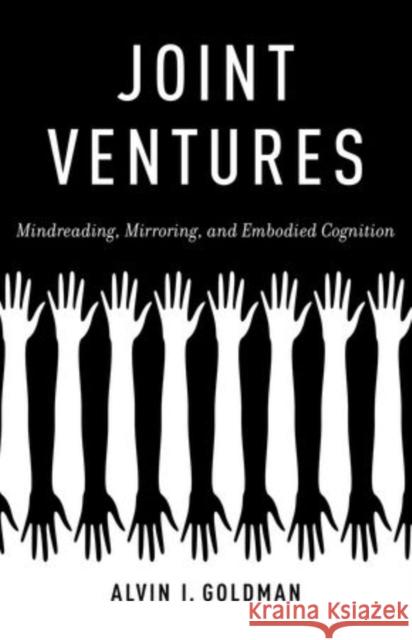Joint Ventures: Mindreading, Mirroring, and Embodied Cognition » książka
topmenu
Joint Ventures: Mindreading, Mirroring, and Embodied Cognition
ISBN-13: 9780199874187 / Angielski / Twarda / 2013 / 360 str.
Joint Ventures: Mindreading, Mirroring, and Embodied Cognition
ISBN-13: 9780199874187 / Angielski / Twarda / 2013 / 360 str.
cena 407,51
(netto: 388,10 VAT: 5%)
Najniższa cena z 30 dni: 391,43
(netto: 388,10 VAT: 5%)
Najniższa cena z 30 dni: 391,43
Termin realizacji zamówienia:
ok. 30 dni roboczych.
ok. 30 dni roboczych.
Darmowa dostawa!
What distinguishes humankind from other species? A leading candidate is our facility at mutual understanding ("theory of mind"), our ability to ascribe thoughts, desires, and feelings to one another. How do we do this? Folk-wisdom says, "By empathy--we put ourselves in other people's shoes." In the last few decades this idea has moved from folk-wisdom to philosophical conjecture to serious scientific theory.
This volume collects essays by Alvin Goldman, many of which have played a major role in crystallizing this "simulation," or "empathizing," account of mindreading and showing how it is confirmed by recent findings in psychology and cognitive neuroscience. Regions of your brain resonate with the brains of others when you observe them manifest their feelings in facial affect or see them about to undergo a painful stimulus or a mere touch on the arm. Essays in the volume explore an array of topics in the philosophy of cognitive science, ranging from embodied cognition to the metaphysics of actions and events. "Embodied cognition" is a catch-phrase for a family of current proposals in the philosophy of cognitive science. Some of these call for a radical re-shaping of cognitive science and others for a more measured response to repeated experimental findings that the body--or representations of the body--figure more prominently in cognition than previously recognized. Goldman dives into this terrain with a theory that brings coherence and unity to a large swath of scientific evidence. Other essays revisit his earlier work on action individuation but reconfigure it with a psychologizing twist. The final essay prepares the reader for a futuristic scenario: a book presents you with eerily accurate accounts of your past life, your present thoughts, and even your upcoming decisions. How should you respond to it?










